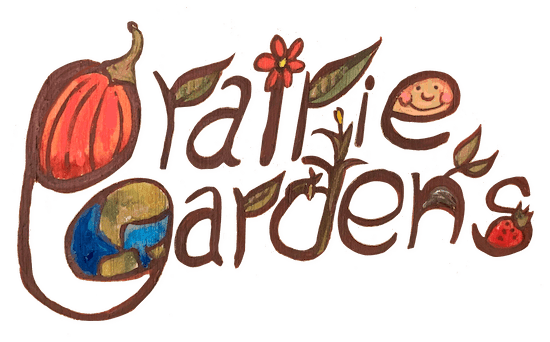The word compost comes from the latin com meaning “together” and post meaning “to bring”. It is the bringing together of organic matter into a process of decomposition, which produces a soil conditioner rich in nutrients. From home gardeners to small scale farms like Prairie Gardens, composting is one of the best things we can do for our plants and for our environment.
While the majority of Canada’s food waste occurs during processing, packaging, and retailing, a whopping 47% of food waste is generated by households (1). A lot of the waste problem within households can be negated by consuming less and shopping local, but composting is the best way to manage the food we can’t consume. Although many cities have implemented large scale composting systems, much of Canada’s food waste still ends up in the landfill which generates greenhouse gas emissions (primarily methane).
Composting is an incredible practice we can use to improve the health of our communities. Compost is filled with nutrients necessary for plant health, such as nitrogen, phosphorus, and potassium. The organic matter in compost binds to soil to create a crumbly soil structure that holds water on their surfaces and releases it as needed to the plants, while simultaneously creating space for oxygen and optimal root growth.
The process of composting is as old as the earth itself. At the end of its lifecycle, a plant returns to the soil where it transforms into nutrients for future plants. Composting is great because it recycles what we have in excess and turns it into a new resource! People often do not know the many items that can be composted. Not only food scraps, but also wood ash, cardboard, manure, weeds, and even organic fibre clothing!
This summer at Prairie Gardens, our apprentices are helping construct our first compost system. We will soon be offering workshops where participants will learn to start and maintain their own composts – so stay connected to our newsletter and website for the latest updates!
- National Zero Waste Council 2019. http://www.nzwc.ca/focus/food/Pages/default.aspx.

